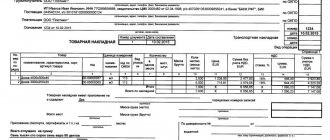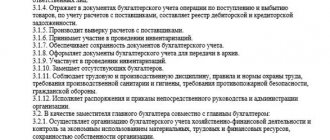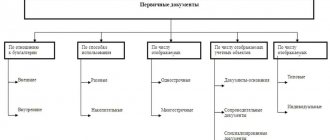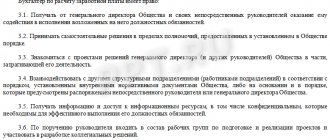What needs to be completed so that the director can sign documents for the chief accountant?
Transfer of signature rights to the general director from the chief accountant is a phenomenon that often arises in modern business conditions. This situation is typical for small businesses when the director combines his powers with the functions of the chief accountant.
If the director, upon taking office, indicated in the order that he takes over the accounting, it is not necessary to issue orders or powers of attorney specifically for the right to sign for the chief accountant, since:
- the ability of the general director to act without a power of attorney on behalf of the company is enshrined in law (Article 69 of the Law “On Joint Stock Companies” dated December 26, 1995 No. 208-FZ, paragraph 3 of Article 40 of the Law “On Limited Liability Companies” dated February 8, 1998 No. 14 -FZ);
- Section 3 of Art. allows certain categories of businessmen to combine directorial functions with those of the “chief accountant”. 7 of the Law “On Accounting” dated December 6, 2011 No. 402-FZ.
It is necessary to issue an order or power of attorney for the right to sign any documents, if the exact opposite situation arises - the chief accountant signs for the director (in his absence due to illness, vacation, business trip, etc.).
The articles posted on our website will tell you how to draw up an order or power of attorney to grant the right to sign documents:
The nuances of signing documents by the general director for the chief accountant
Problems may arise if the document form contains two signatures at the same time: the director and the chief accountant (for example, an invoice, a universal transfer document, etc.). Filling out both lines with the same signatures may raise additional questions from counterparties or regulatory authorities.
If the director has assigned the functions of accounting to himself by order, everyone who asks a question about the legality of this form of signing a document must be presented with this order.
If it turns out that the company has a chief accountant on staff and the document (in the line intended for his signature) contains his last name, the consequences may be as follows:
- counterparties will ask you to redo the document, since the signature and its transcript do not correspond to each other;
- regulatory authorities will have claims against a document drawn up with violations, and in some cases, for example, when confirming a VAT deduction, the legality of this form of signing documents will have to be proven in court. For example, in the paper version of the invoice, the signature of the chief accountant is required (clause 6 of Article 169 of the Tax Code of the Russian Federation, letter of the Ministry of Finance of Russia dated August 27, 2014 No. 03-07-09/42854).
To avoid misunderstandings and not waste time proving the legitimacy of the director’s signature for the chief accountant, this right can be delegated to another person (not the general director) by issuing a power of attorney or order.
For a variety of information about documents and the requirements for signing them, see the articles posted on our website:
the right to sign for the chief accountant if he has taken over the accounting. In other cases, it is better to assign this right to another person, confirming such powers with a power of attorney or order.
How to register your disagreement with the director’s decision
When there are no written orders from management, and it is difficult to insist on their execution, the chief accountant has the opportunity to protect himself by drawing up a memo to the manager. It states:
- the reason for writing the note;
- problems that may arise;
- the chief accountant’s negative attitude towards solving the task in the proposed version;
- your option (if any).
In order for such a note to have any legal force, it must be officially handed over to the secretary with the incoming number recorded. Subsequently, a correctly drafted note, if not completely freeing you from liability, will certainly serve as a mitigating circumstance.
Signing the document: what, where and how
Each fact of the economic life of an organization is accompanied by a document: an invoice, a letter, an order or a payment order. But it is not always clear who signs such documents. Let's answer a few questions on this topic.
Has the chief accountant gone on maternity leave? Give the digital signature to the replacement employee
The chief accountant went on maternity leave. Instead, “Client-Bank” is now run by her deputy. Can he use the digital signature of the master? Do I need to redo the digital signature for a new person or can I “transfer” the digital signature by drawing up some document?
: The replacement employee can use the digital signature of the chief accountant. For this you need clause 1 of Art. 10 of the Law of 04/06/2011 No. 63-FZ (hereinafter referred to as Law No. 63-FZ):
- include a clause on the “transfer” of the digital signature in the order transferring powers to the deputy during the maternity leave of the chief accountant;
- issue a separate order to “transfer” the digital signature to the deputy chief accountant.
In this case, the responsibility for using the digital signature of the chief accountant will be borne by the deputy.
The director may delegate the right to sign powers of attorney to receive inventory items to another person
Our director is going on vacation. All documents for the purchase and sale of goods (invoices, invoices, powers of attorney for receiving inventory items) will be signed for him by other employees. Is it enough to indicate this in the order?
: Invoices are signed by the manager or persons authorized to do so by order or power of attorney and clause 6 of Art. 169 Tax Code of the Russian Federation. So if another employee signs the invoice for the director, then the right to sign can be transferred by power of attorney or by order of clause 6 of Art. 169 Tax Code of the Russian Federation.
In a standard invoice , both for the sale and purchase of goods and materials, the signature of the manager is not needed - it is signed by the materially responsible persons. But if your director nevertheless signed this initial document, then before the vacation it is enough for him to issue an order appointing persons responsible for the shipment and receipt of goods and clause 6, part 2, art. 9, part 1 art. 7 of the Law of December 6, 2011 No. 402-FZ (hereinafter referred to as Law No. 402-FZ); clause 14 of the Regulations, approved. By Order of the Ministry of Finance dated July 29, 1998 No. 34n.
A power of attorney from an organization can be issued only by its head or another person authorized by the constituent documents to act on behalf of the organization without a power of attorney, that is, by persons whose information is included in the Unified State Register of Legal Entities of the organization and paragraph. 3 p. 1 art. 53 Civil Code of the Russian Federation; Art. 27 Tax Code of the Russian Federation. Therefore, it is most convenient if the director signs in advance the necessary powers of attorney to receive inventory and materials for the period of his absence. Instructions, approved. Resolution of the State Statistics Committee dated October 30, 1997 No. 71a. Or he can entrust this right to someone by issuing a power of attorney for the right to sign powers of attorney to receive goods and materials, clause 3 of Art. 29 Tax Code of the Russian Federation; pp. 1, 3, 7 tbsp. 187 Civil Code of the Russian Federation.
The chief accountant can approve the advance report
Can the chief accountant sign the expense report instead of the manager?
: Yes maybe.
In the advance report, the manager puts his signature under the words “I approve the report in the amount. ", thereby confirming that the expenses on the advance report are, as they say, for the benefit of the organization. So if the director decided to entrust this mission to the chief accountant, then you need to formalize:
- order on delegation of authority to approve expense reports;
- power of attorney clause 4 art. 185.1 Civil Code of the Russian Federation.
Agreements signed with a qualified digital signature have legal force
Do contracts concluded on the Supplier Portal need to be printed and certified with the organization’s seal and the signatures of managers? Or is it enough that they are certified with digital signature?
You can find out how electronic contracts are signed: Supplier Portal → Supplier Portal User Instructions → Registration on the Supplier Portal
: It is not necessary to put “live” signatures and stamps on the contract concluded on the Supplier Portal. Such electronic contracts are signed with an enhanced qualified electronic digital signature. 1, 4 tbsp. 5 of Law No. 63-FZ. An agreement signed with a qualified digital signature is recognized as equivalent to an agreement on paper, signed with a “living” signature and certified by a seal.
Why is the signature so important?
A signature is a handwritten unique combination of characters indicating the author’s last name, which serves to authenticate and confirm the authenticity of documents. In Russia, an analogue of the modern signature indicating the name appeared around the 16th century
: These were signatures focused on examples of Greek writing. However, the signature was not always considered the only possible identification sign. Russian lawyer Lokhvitsky A.V. argued that the kings before Peter I did not sign decrees, and the authenticity of their will was certified by a seal.
Surprisingly, even in the modern world there are such alternative methods of identification. For example, in Japan, the “inkan” (or “hanko”) is still widely used: a personalized personal seal used to carry out various transactions. Alternative identification methods have not become popular in Russia. This fact is explained by the fact that a hand-made signature is the simplest identification sign of all possible
.
Recently, electronic document management has increasingly entered our lives. Current legislation provides for the possibility of using an electronic digital signature to certify the authenticity of documents used in business transactions, including documents sent by individuals and legal entities to state and municipal authorities.
It can be expected that as the “digital society” develops, an increasing part of documents will be converted into electronic form and an electronic identifier – an electronic digital signature
or other electronic confirmation methods. However, it seems that a hand-made signature will retain its significance for a long time due to the ease of implementation.
Can the director sign for the chief accountant?
Perhaps this does not require a power of attorney or a special order. Clause 3 of Art. 40 of the Law “On LLC” dated 02/08/1998 No. 14-FZ assigns to the manager the status of the legal representative of the organization, and, consequently, the right to represent the interests of society and enter into transactions without a power of attorney.
However, this does not mean that the content of this article makes the presence of an accountant in companies where the director has decided to independently delve into the intricacies of accounting pointless. The execution of some documents is regulated separately by the Law “On Accounting” dated December 6, 2011 No. 402-FZ, PBU 4/99, the Tax Code and information messages of the Ministry of Finance, and therefore requires compliance with certain formalities - both on the papers themselves and in the constituent documents of the organization .
So, the legislation gives the general director greater rights than other employees, which is not surprising. However, along with authority, the manager bears responsibility for what happens in the organization. Therefore, the right of the director to sign for the chief accountant in most cases is a sign that the company’s chief executive has to be distracted from business development by auditing and processing documents.
The head of a company that has outsourced its accounting department to 1C-WiseAdvice specialists for comprehensive services will not have to take time off from strategic issues to figure out whether someone else should sign the financial statements or invoice. Indeed, by the way, even regulations contain conflicting requirements for filling out these documents, and therefore organizations often have to go to court, for example, to prove the legality of applying the deduction.
What types of signatures are there?
Signatures consisting of letters that make up a person’s surname, or of similar elements, most often performed in arc or loop movements,
. Signatures that contain letters with additional elements - unusual strokes or when the letters and elements included in the signature are repeated and intersected many times are considered more complex. The more elements included in the signature, the higher its information content, the more information about the performer is “included in the signature.” The expert’s task is to “read” this information.
Identification research of a signature is based on three main properties of handwriting: individuality, stability and variability.
.
It is these properties that explain the fact that each person’s signature is individual. Formed around the age of twenty, the signature remains relatively unchanged throughout life, unless a person specifically makes an effort to do so. The individuality of the signature is characterized by the tempo of execution, coordination of movements, tilt and other features of the execution. Carrying out research, the expert identifies this set of characteristics characteristic of the performer of this particular signature
. This is not an easy task. The result depends on the expert’s qualification level, which consists of the expert’s knowledge of research methodology and practical work experience.
How to fill out documents that require two signatures?
Since mid-2015, an appendix to the Order of the Ministry of Finance of Russia dated April 6, 2015 No. 57n, the signature of the chief accountant was excluded from a number of documents, including from:
- balance sheet;
- financial results report;
- statement of changes in capital;
- statement of cash flows and intended use of funds;
- simplified forms of balance sheet.
Completion of one of the key accounting documents - accounting (financial) statements is regulated by Article 13 of Law No. 402-FZ. Thus, the reporting is considered completed after it has been signed by the head of the organization. The law does not provide for any other requirements for its approval.
This provision is confirmed by the Resolution of the Arbitration Court of the Far Eastern District dated 02/05/2019 No. F03-6116/2018 in case No. A73-8993/2018. In it, the court, referring to the above-mentioned article, confirmed that the reporting is considered drawn up after the general director has put his signature on it.
At the same time, clause 17 of PBU 4/99 and clause 38 of the Regulations on accounting and financial reporting in the Russian Federation insist that this document is signed by both the director and the accountant.
The contradictory content of the mentioned standards was explained by the Ministry of Finance in the information message dated May 19, 2015 No. IS-accounting-2. It states that “the authority to sign accounting (financial) statements is established, as a rule, by the constituent documents of an economic entity, or by decisions of the relevant management bodies of the economic entity.”
Expert outsourced accounting services will save any company from all the delights of studying numerous and sometimes contradictory requirements for filling out reports, as well as from errors and financial risks.
Invoice, in accordance with clause 6 of Art. 169 of the Tax Code of the Russian Federation, in addition to the manager, must be signed by the chief accountant or another person authorized to do so through a special order. In the case of an individual entrepreneur, the document is endorsed either by the entrepreneur himself or by his authorized representative acting under a power of attorney.
What should the head of an organization do if there is no accountant on staff, and the invoice is the basis for deducting the tax amounts presented to the buyer by the seller? Sign both for yourself and for the chief accountant.
The chief accountant of the branch can sign the invoice for the manager and chief accountant
Home → Articles → The chief accountant of the branch can sign the invoice for the manager and chief accountant
The norms of the Tax Code of the Russian Federation and Appendix No. 1 to Decree of the Government of the Russian Federation of December 26, 2011 No. 1137 “On the forms and rules for filling out (maintaining) documents used in calculations of value added tax” do not establish a ban on signing an invoice by one person entitled signatures on the basis of a power of attorney. At the same time, the organization does not have documents (order, employment contract, power of attorney) according to which the powers would be delegated to the chief accountant to sign for the head of the organization. The organization issued powers of attorney to the chief accountants of the branches to sign documents, including invoices . The power of attorney does not indicate whose authority (manager or chief accountant) to sign invoices is vested in the chief accountant of the branch. The power of attorney issued to the chief accountant states: the organization... “authorizes to sign invoices”, the right to sign for the manager (for the chief accountant organization) invoices are not specified. Is it legal for the same person (chief accountant) to sign an invoice for the manager and for the chief accountant in the specified circumstances? Is it legal to deduct “input” VAT on an invoice issued in this way? Are claims from regulatory authorities possible?
In accordance with paragraph 2 of Art. 169 of the Tax Code of the Russian Federation, invoices are the basis for accepting VAT amounts presented to the buyer by the seller for deduction when the requirements established by clauses are met. 5, 5.1 and 6 tbsp. 169 of the Tax Code of the Russian Federation.
In turn, clause 6 of Art. 169 of the Tax Code of the Russian Federation establishes that an invoice is signed by the head and chief accountant of the organization or other persons authorized to do so by an order (other administrative document) for the organization or a power of attorney on behalf of the organization.
According to paragraph 8 of Art. 169 of the Tax Code of the Russian Federation, the form of the invoice and the procedure for filling it out are established by the Government of the Russian Federation.
Currently, the procedure for drawing up invoices is regulated by Decree of the Government of the Russian Federation dated December 26, 2011 No. 1137 “On the forms and rules for filling out (maintaining) documents used in calculations of value added tax” (hereinafter referred to as Resolution No. 1137). The form of the invoice used in calculations of value added tax and the rules for filling it out are established by Appendix 1 to Resolution No. 1137 (hereinafter referred to as the Rules).
The invoice form contains the details (indicators) “Head of the organization or other authorized person” and “Chief accountant or other authorized person.” The Rules do not contain any special provisions for filling out the specified details.
The Ministry of Finance of Russia in letters dated 04/10/2013 No. 03-07-09/11863, dated 04/23/2012 No. 03-07-09/39 explained that in the case when an invoice is signed by an authorized person, the signature of the corresponding person is affixed precisely to these indicators and indicate his last name and initials.
Thus, persons authorized to sign invoices with the corresponding administrative document or power of attorney put their signature instead of the surnames and initials of the head and chief accountant of the organization, and after the signature their surname and initials are indicated.
In this case, it is not required to indicate the position of the persons who signed the invoice and the documents providing the corresponding authority.
At the same time, in the above-mentioned letters, specialists from the financial department note that the norms of the Tax Code of the Russian Federation do not prohibit the indication of additional details (information) in invoices, including the position of the authorized person who signed the corresponding invoice. Representatives of the Federal Tax Service of Russia also agree with the Russian Ministry of Finance. The letter dated January 26, 2012 No. ED-4-3/1193 indicates that the presence in the invoice of additional details (information) not provided for in paragraphs. 5 and 6 tbsp. 169 of the Tax Code of the Russian Federation and Resolution No. 1137, is not a basis for refusing to accept for deduction the amounts of tax presented by the seller to the buyer (see also letter of the Ministry of Finance of Russia dated October 14, 2015 No. 03-07-09/58937).
In the situation under consideration, the chief accountants of the organization's branches were given powers of attorney to sign documents, including invoices.
A power of attorney, as a written document, must disclose the content of the authority issued by one person to another person for representation before third parties. Therefore, the mandatory elements of a power of attorney are information about the person being represented, the representative, as well as the actions for which the representative is authorized (Articles 182, 185 of the Civil Code of the Russian Federation).
In the situation under consideration, the powers of attorney issued to the chief accountants of the branches indicate that they are vested with the authority to sign invoices.
Moreover, the powers of attorney do not indicate whose powers are vested in the chief accountant of the branch - the head of the organization or the chief accountant of the organization.
In a letter from the Ministry of Finance of Russia dated October 21, 2014 No. 03-07-09/53005, specialists from the financial department explained that the norms of the Tax Code of the Russian Federation and the Rules do not establish a ban on signing an invoice by one person authorized to sign on the basis of a power of attorney for both the manager and for the chief accountant of the organization. A similar position is set out in the letter of the Federal Tax Service of Russia dated June 18, 2009 No. 3-1-11/425.
In the situation described in the question, the powers of attorney issued to the chief accountants of the branches do not specify the authority to sign invoices. There is no prohibition on signing invoices for the head of the organization (for the chief accountant) in powers of attorney. In this regard, we believe that the chief accountants of the branches, on the basis of the powers of attorney in question, have the rights to sign invoices for both the chief accountant of the organization and the manager. Therefore, in our opinion, the signing of an invoice by the chief accountant of a branch for both the manager and the chief accountant of the organization is legal.
We were unable to find any explanations from authorized bodies or examples of arbitration practice in similar situations.
From the analysis of arbitration practice, it follows that tax authorities closely examine the signatures on invoices and the powers of the persons who put these signatures. First of all, the claims of the tax authorities are related to the legality of deducting VAT amounts by buyers, since the presence of correctly executed invoices is one of the prerequisites for deducting VAT (clause 1 of Article 172 of the Tax Code of the Russian Federation).
Please note that Chapter 21 of the Tax Code of the Russian Federation does not contain requirements for sending to the buyer documents confirming the authority of the persons signing invoices, if these invoices are signed by persons authorized by an order (other administrative document) for the organization or a power of attorney on behalf of the organization . If the tax authority needs to obtain a copy of an administrative document or a power of attorney for the right to sign by authorized persons invoices issued by counterparties to the taxpayer-buyer, then the tax authority has the right to request these documents at the place of registration of such counterparties in the manner established by Art. 93.1 of the Tax Code of the Russian Federation (letter of the Federal Tax Service of Russia dated 08/09/2010 No. ШС-37-3/8664).
The taxpayer's lack of documents confirming the authority of the signatories cannot entail negative consequences for him. To accept the tax amounts presented to the buyer by the seller for deduction, a properly executed invoice is sufficient (see, for example, the decisions of the Federal Antimonopoly Service of the Moscow District dated 06/03/2009 No. KA-A40/4697-09-2, the Ninth Arbitration Court of Appeal dated 09/24/2008 No. 09AP -11535/2008, Presidium of the Supreme Arbitration Court of the Russian Federation dated April 20, 2010 No. 18162/09).
According to the courts, the signing of invoices by an unauthorized person does not in itself constitute grounds for refusal of VAT refund, since in accordance with the Tax Code of the Russian Federation, the obligation to prepare invoices rests with the supplier of goods (works, services). If circumstances have not been established indicating that the taxpayer knew or should have known about the provision of unreliable or contradictory information by the seller, then there are no grounds for concluding that the information contained in the invoices is unreliable or inconsistent, since the taxpayer is liable for the unlawful actions of his counterparties are not established by tax legislation (see, for example, the decisions of the Twentieth Arbitration Court of Appeal dated May 17, 2017 No. 20AP-1277/17, the Nineteenth Arbitration Court of Appeal dated December 23, 2014 No. 19AP-7143/14, dated May 28, 2014 No. 19AP-3049/ 13, FAS Central District dated December 10, 2012 No. F10-4366/12 in case No. A62-8019/2011, dated October 2, 2012 No. F10-3411/12 in case No. A64-7435/2011).
When making such decisions, the courts refer to the legal position of the Supreme Arbitration Court of the Russian Federation, set out in the Resolution of the Presidium of the Supreme Arbitration Court of the Russian Federation dated April 20, 2010 No. 18162/09, according to which the legislation on taxes and fees of the Russian Federation is based on the presumption of good faith of the taxpayer and other participants in legal relations in the economic sphere. In this regard, it is assumed that the actions of the taxpayer, resulting in the receipt of tax benefits, in particular tax deductions when calculating VAT, are economically justified, and the information contained in the tax return and financial statements is reliable.
Submission by the taxpayer to the tax authority of all properly executed documents provided for by the Tax Code of the Russian Federation in order to obtain a tax benefit is the basis for receiving it, unless the tax authority proves that the information contained in these documents is incomplete, unreliable and (or) contradictory.
The obligation to draw up invoices that serve as the basis for the application of a tax deduction by the taxpayer - buyer of goods (works, services), and to reflect in them the information specified in Art. 169 of the Tax Code of the Russian Federation, rests with the seller. Consequently, if the counterparty complies with the specified requirements for the preparation of the necessary documents, there are no grounds for concluding that the information contained in the mentioned invoices is unreliable or inconsistent, unless circumstances are established indicating that the taxpayer knew or should have known about the provision by the seller of unreliable or conflicting information.
In addition, when making decisions, the courts are guided by Resolution of the Plenum of the Supreme Arbitration Court of the Russian Federation dated October 12, 2006 No. 53 “On the assessment by arbitration courts of the validity of a taxpayer receiving a tax benefit” (hereinafter referred to as Resolution No. 53).
Clause 5 of Resolution No. 53 states that the unjustifiedness of a tax benefit may be evidenced by evidence-based arguments of the tax authority about the presence, in particular, of the following circumstances: – the impossibility of the taxpayer actually carrying out these operations, taking into account the time, location of the property or the volume of material resources, economically necessary for the production of goods, performance of work or provision of services; – lack of necessary conditions for achieving the results of the relevant economic activity due to the lack of managerial or technical personnel, fixed assets, production assets, warehouses, vehicles; – accounting for tax purposes only of those business transactions , which are directly related to the emergence of a tax benefit, if this type of activity also requires the completion and accounting of other business transactions; – transactions with goods that were not produced or could not be produced in the amount specified by the taxpayer in the accounting documents.
The fact that a taxpayer's counterparty violates its tax obligations does not in itself constitute evidence that the taxpayer received an unjustified tax benefit. A tax benefit may be recognized as unjustified if the tax authority proves that the taxpayer acted without due diligence and caution and he should have been aware of violations committed by the counterparty, in particular, due to the relationship of interdependence or affiliation of the taxpayer with the counterparty.
A tax benefit may also be recognized as unjustified if the tax authority proves that the activities of the taxpayer, his interdependent or affiliated persons are aimed at carrying out transactions related to tax benefits, mainly with counterparties who do not fulfill their tax obligations (clause 10 of Resolution No. 53) .
Clause 2 of the definition of the Constitutional Court of the Russian Federation dated October 16, 2003 No. 329-O states that the interpretation of Art. 57 of the Constitution of the Russian Federation in a systematic connection with other provisions of the Constitution of the Russian Federation does not allow us to conclude that the taxpayer is responsible for the actions of all organizations participating in the multi-stage process of paying and transferring taxes to the budget. Law enforcement authorities cannot interpret the concept of “bona fide taxpayers” as imposing additional obligations on taxpayers not provided for by law.
An analysis of arbitration practice shows that when making decisions on the legality of applying VAT deductions on the basis of invoices that have deficiencies, the courts first of all examine the reality of the transaction based on a set of documents presented, interviews with witnesses, expert opinions and other evidence presented by the parties spore.
If, on the basis of the presented evidence, it is established that the transaction was unrealistic, then the deduction of VAT on the basis of invoices signed by unauthorized persons is considered unlawful (see, for example, Resolution of the Seventeenth Arbitration Court of Appeal dated December 26, 2016 No. 17AP-16861/ 16).
Thus, even if we assume that the powers of attorney issued to the chief accountants of the branches do not give them the authority of the manager to sign invoices, then this fact alone cannot be the basis for refusing the buyer to deduct tax amounts. The tax authority will have to prove the unreality of the transaction between your organization and the buyer. At the same time, the buyer will most likely have to defend his case in court. In our opinion, in order to avoid such risks, it is advisable for the organization to specify in more detail the powers vested in the chief accountants of branches by the powers of attorney issued to them.
At the same time, we repeat that, in our opinion, the chief accountants of branches, on the basis of the powers of attorney issued to them, have the right to sign invoices for both the chief accountant of the organization and the manager.
The stated position is our expert opinion. It is difficult to predict how the tax authorities will evaluate the current powers of chief accountants of branches, since there are no official explanations for such situations.
Let us recall that an organization can exercise the right of a taxpayer and apply to the Ministry of Finance of Russia or the tax authority at the place of its registration for personal written explanations on this issue (subparagraphs 1, 2, paragraph 1, Article 21 of the Tax Code of the Russian Federation). If a dispute arises, the presence of personal written explanations from the financial department or tax authorities excludes the person’s guilt in committing a tax offense on the basis of paragraphs. 3 p. 1 art. 111 of the Tax Code of the Russian Federation.
Answer prepared by: Natalya Vakhromova, expert of the GARANT Legal Consulting ServiceResponse quality control: Vyacheslav Gornostaev, reviewer of the GARANT Legal Consulting Service, auditor, member of the RSA
Latest news of the digital economy on our Telegram channel
| Need an electronic signature? All you have to do is leave a request. We will help you choose the type of electronic signature certificate you need, tell you how to apply it and provide other additional services. Leave a request >> |
Invoice without the signature of the chief accountant: is the deduction legal?
In the resolution of the Federal Antimonopoly Service of the North-Western District dated November 17, 2006 in case No. A56-35103/2005, the court indicated that the identity of the signatures of the general director and chief accountant in the disputed invoices does not deprive the organization of the right to claim a refund of the VAT paid to the supplier on the basis of this document. But this is provided that it contains all the necessary details and information required by tax legislation.
“The presence in invoices of transcripts of the signatures of the manager and chief accountant is not provided for by the provisions of paragraph 6 of Article 169 of the Tax Code of the Russian Federation and the requirements for the preparation of primary accounting documents given in Article 9 of the Federal Law of November 21, 1996 No. 129-FZ,” the resolution states.
A similar conclusion is contained in other resolutions. For example, in the resolution of the Federal Antimonopoly Service of the North Caucasus District dated October 29, 2008 No. F08-6533/2008 in case No. A53-2656/2008-C5-14, the court recognized the deduction on an invoice signed by the manager as legitimate. And all because, according to the order, he reserved the right to sign accounting and financial documents for the chief accountant.
A similar decision, motivated by the fact that the general director of the company simultaneously performs the duties of the chief accountant, was announced by the court in the decision of the Federal Antimonopoly Service of the North Caucasus District dated 06/03/2009 in case No. A53-17547/2008-C5-23.
That is, detailed planning of the business organization - in the charter and other constituent documents - plays an important role in the ability to defend the legitimacy of the absence of the signature of the company's chief accountant on the invoice.
The risk-based approach of 1C-WiseAdvice specialists to the management of processes that are strategically important for business - accounting and tax accounting, document flow, including personnel, etc. - will free the company from the need to make changes to the constituent documents or issue orders retroactively.
Managers of companies that have outsourced their accounting to 1C-WiseAdvice spend their time on business development rather than its day-to-day maintenance.
Manager's right
It is a well-known fact: the right of the head of an organization to sign documents is absolute. To confirm it, no additional powers of attorney or orders are needed. It is enshrined in a number of federal laws and regulations. Here are some of them:
- Federal Law-14 “On LLC” speaks about this in Art. 40-3. The manager can, among other things, make transactions on behalf of the Company, i.e. sign not only internal, but also external documents. Here it is also appropriate to recall Art. 53 of the Civil Code of the Russian Federation, from which it follows that contracts on behalf of the company are signed by its management.
- Federal Law-402 “On Accounting” in Art. 9 says that one of the required details of the primary document is the signature of the person who made the transaction. The regulations on accounting and reporting, approved by Order No. 34n dated July 29, 1998, directly assert the right of the manager to conduct personal accounting, in case of controversial situations, make sole decisions regarding accounting, and also approve the list of persons authorized to sign accounting documents (v. 14), i.e. in fact, he may reserve the right to sign them alone.
However, managers often delegate their signing rights to other employees or third parties. In the company, according to Art. 65.3 clause 3 of the Civil Code of the Russian Federation, there may be several managers. In such cases, the right of first signature and division of powers is prescribed in the Charter.
How to fill out a sample signature card for a bank?
What needs to be completed so that the director can sign documents for the chief accountant?
Transfer of signature rights to the general director from the chief accountant is a phenomenon that often arises in modern business conditions. This situation is typical for small businesses when the director combines his powers with the functions of the chief accountant.
If the director, upon taking office, indicated in the order that he takes over the accounting, it is not necessary to issue orders or powers of attorney specifically for the right to sign for the chief accountant, since:
- the ability of the general director to act without a power of attorney on behalf of the company is enshrined in law (Article 69 of the Law “On Joint Stock Companies” dated December 26, 1995 No. 208-FZ, paragraph 3 of Article 40 of the Law “On Limited Liability Companies” dated February 8, 1998 No. 14 -FZ);
- Section 3 of Art. allows certain categories of businessmen to combine directorial functions with those of the “chief accountant”. 7 of the Law “On Accounting” dated December 6, 2011 No. 402-FZ.
It is necessary to issue an order or power of attorney for the right to sign any documents, if the exact opposite situation arises - the chief accountant signs for the director (in his absence due to illness, vacation, business trip, etc.).
The articles posted on our website will tell you how to draw up an order or power of attorney to grant the right to sign documents:
How to obtain credentials
If, when transferring powers and taking office, the manager assumed not only his immediate responsibilities, but also accounting, he has the right to endorse all categories of documents independently. A separate power of attorney or order is not required for this.
In the same way, the right of an individual entrepreneur to sign for the chief accountant is established: if his commercial activities do not provide for the presence of a chief accountant, the financial documentation is signed by the entrepreneur or his authorized representative (clause 3 of Article 7 402-FZ of December 6, 2011).
If the organization has a chief accountant, and the director needs to endorse the settlement registers instead of him, draw up an order for the transfer of signing rights. In the official order, indicate:
- basic details - number and date;
- list of documentation for approval (accounting, financial, tax);
- grounds for transfer of rights;
- references to standards;
- Full name and signature of the employee to whom the authority is transferred (in this case, the manager).
Sign the order with the manager and affix the organization’s seal.
The nuances of signing documents by the general director for the chief accountant
Problems may arise if the document form contains two signatures at the same time: the director and the chief accountant (for example, an invoice, a universal transfer document, etc.). Filling out both lines with the same signatures may raise additional questions from counterparties or regulatory authorities.
If the director has assigned the functions of accounting to himself by order, everyone who asks a question about the legality of this form of signing a document must be presented with this order.
If it turns out that the company has a chief accountant on staff and the document (in the line intended for his signature) contains his last name, the consequences may be as follows:
- counterparties will ask you to redo the document, since the signature and its transcript do not correspond to each other;
- regulatory authorities will have claims against a document drawn up with violations, and in some cases, for example, when confirming a VAT deduction, the legality of this form of signing documents will have to be proven in court. For example, in the paper version of the invoice, the signature of the chief accountant is required (clause 6 of Article 169 of the Tax Code of the Russian Federation, letter of the Ministry of Finance of Russia dated August 27, 2014 No. 03-07-09/42854).
To avoid misunderstandings and not waste time proving the legitimacy of the director’s signature for the chief accountant, this right can be delegated to another person (not the general director) by issuing a power of attorney or order.
For a variety of information about documents and the requirements for signing them, see the articles posted on our website:
Signature right for the chief accountant
may be from the general director, if he has taken over the accounting. In other cases, it is better to assign this right to another person, confirming such powers with a power of attorney or order.
Powers of the chief accountant
The chief accountant has the right of second signature on the invoice and TORG-12. The chief accountant has the right to sign other documents only on the basis of a power of attorney issued by the head of the legal entity. For the procedure for issuing a power of attorney, see the recommendations.
"No not always. Completed tax reporting forms must be signed by representatives of the organization (). The chief accountant is *. Therefore, he can sign reports only if he has a power of attorney for the right to sign (Tax Code of the Russian Federation).
If there is no position of chief accountant in the organization, if there are powers of attorney from the taxpayer organization, the accuracy and completeness of the information specified in the reporting can be confirmed* by:
- full-time accountant of the organization;
- head of a specialized organization (centralized accounting) responsible for accounting;
- an employee of a specialized organization responsible for maintaining records (if a power of attorney for the right to sign reports was issued to the head of a specialized organization with the right to delegate it to other persons);
- a specialist accountant who keeps records on a contractual basis.
Such clarifications are contained in letters from the Russian Ministry of Finance and.
If the head of the organization personally conducts accounting, then he signs the reports as a legal representative.
For the manager's signature, appropriate fields are provided in the reporting forms.
A professional help system for lawyers in which you will find the answer to any, even the most complex, question.
Accountant's responsibility
As an employee, the chief accountant is responsible for direct actual damage caused to the employer, on a general basis - in the manner established by Chapter 39 of the Labor Code of the Russian Federation. Such damage can be caused to the company by the collection of administrative or tax fines, as well as sanctions for failure to fulfill contractual obligations (for example, imposing a penalty for late transfer of funds to a counterparty). Generally speaking, claims can also be made against an accountant in connection with the accrual of penalties for taxes, fees and insurance premiums, if these debts arose as a result of violations of payment discipline.
In addition, fines can be presented to the chief accountant directly. In the case of applying Articles 15.5, 15.6 and 15.11 of the Code of Administrative Offenses, the courts proceed from the fact that the chief accountant is responsible for maintaining accounting records, timely submission of complete and reliable financial statements (clause 24 of the Resolution of the Plenum of the Supreme Court of the Russian Federation dated October 24, 2006 No. 18 , Resolution of the St. Petersburg City Court dated 08/05/2010 No. 4a-1337/10, Resolution of the Supreme Court of the Russian Federation dated 03/09/2017 No. 78-AD17-8).
But the most unpleasant thing is criminal liability for crimes in the sphere of economic activity. Recently, accountants are increasingly appearing in cases under Articles 199 and 199.2 of the Criminal Code of the Russian Federation on non-payment of taxes (clause 7 of the Resolution of the Plenum of the Supreme Court of the Russian Federation dated December 28, 2006 No. 64 “On the practice of application by courts of criminal legislation on liability for tax crimes”). And Article 176 of the Criminal Code of the Russian Federation directly provides for liability for providing a bank or other creditor with knowingly false information about the economic situation or financial condition of the organization (if such an act caused damage to the creditor in an amount exceeding 2,500,000 rubles).
The right of the second signature of the chief accountant on documents
the right of the second signature belonged to the chief accountant - this was the wording contained in clause.
7.6 of the Bank of Russia Instruction No. 28-I dated September 14, 2006, devoted to the procedure for opening and closing bank accounts.
No one questioned the status of the second signature of the chief accountant if an order was issued for his appointment to the position.
After Law No. 129-FZ and Instruction No. 28-I were replaced by a pair of updated regulatory documents of the same name (Law No. 402-FZ and Bank of Russia Instruction No. 153-I dated May 30, 2014), on the legislatively established powers of the chief accountant in affixing a signature There is no need to talk about documents for the following reasons:
- the mention of the second signature of the chief accountant disappeared from the text of instruction No. 153-I;
- Law No. 402-FZ does not have a separate article dedicated to the chief accountant and a phrase prohibiting the acceptance for execution of documents without his signature.
Legal Russia
Based on a power of attorney from. .20 09 to provide the right to sign the manager and chief accountant when preparing the following documents on behalf and at the expense of the LLC, invoices, invoices, certificates of work performed for communication services. The right of first signature is assigned to the person indicated in the Charter, other employees only by proxy they can act on behalf of the legal entity. faces. The performance of duties can be entrusted to the accountant, but in this case, by decision of the general meeting that the accountant has the right to perform the duties of the General Manager and in the presence of an appropriate order. That’s right!
I personally always put my signature - I don’t trust accountants.
Does the director have the right to grant the right of first signature on financial and payment documents to the chief accountant of the organization, and the right of second signature to the accountant?
In accordance with clause 7.1 of the Instructions, the card is drawn up on form N 0401026 according to OKUD (Appendix 1 to the Instructions) and is presented by the client to the bank in the cases provided for in the Instructions, along with other documents necessary for opening a bank account.
According to clause 7.5 of the Instructions, the right of first signature belongs to the head of the client - a legal entity (sole executive body), as well as other persons (except for the persons specified in clause.
If the accountant and the director are one person, how to sign certificates
The amount of taxes deducted from wages in accordance with the requirements of Chapter 23 of the Tax Code of the Russian Federation is also indicated here. The certificate is issued by the employer at the request of the employee.
An authorized person is responsible for the formation of this document.
This may be one of the accountants, personnel officers, or another employee who, according to the relevant order, is charged with filling out 2-NDFL certificates.
Only employees employed under an employment contract have the right to request the issuance of a corresponding certificate.
Signing the document: what, where and how
For this it is necessary (hereinafter referred to as Law No. 63-FZ):
- include a clause on the “transfer” of the digital signature in the order transferring powers to the deputy during the maternity leave of the chief accountant;
- issue a separate order to “transfer” the digital signature to the deputy chief accountant.
In this case, the responsibility for using the digital signature of the chief accountant will be borne by the deputy.
O. Anishina, Suzdal Our director is going on vacation. All documents for the purchase and sale of goods (invoices, invoices, powers of attorney for receiving inventory items) will be signed for him by other employees.
: Invoices are signed by the manager or persons authorized by order or power of attorney.
If the company does not have a chief accountant position
Accordingly, the absence of this employee in the organization may create additional difficulties. Let's figure out how to solve possible problems. According to the law, the situation with the absence of an accounting service and the position of chief accountant in an organization is quite typical.
Here the question may arise - how to understand whether my company belongs to these types of legal entities?
Let me remind you that in Russia there is a Federal Law
“On the development of small and medium-sized businesses in the Russian Federation”
. It defines the criteria for classifying organizations as small and medium-sized businesses, including: the total share of participation of the state and large businesses (up to 25%); average annual number of employees (up to 250 people); the amount of annual revenue (no more than one billion rubles) and the book value of assets.
How to sign documents correctly
Its data must be contained in the state register (Unified State Register of Legal Entities or Unified State Register of Individual Entrepreneurs).
IMPORTANT INFORMATION! If, when registering an enterprise, the manager gives the right to sign without a power of attorney along with himself to another person or persons, this information is also entered into the register.
An individual entrepreneur who has the right to perform the functions of a chief accountant can put his signature not only on documents requiring a director’s visa, but also sign in the “chief accountant” column, for example, on a bill of lading.
A power of attorney is a written document that delegates certain powers.
In our case, this is the transfer of the right to sign. This can only be issued by a person who has this right unconditionally according to the constituent data, that is, most often, a representative of the management.
Who should sign a certificate of income for 3 months of the general director if he himself is the chief accountant?
The sole executive body of the company may also be elected not from among its participants.
An agreement between the company and the person carrying out the activities is signed on behalf of the company by the person who chaired the general meeting of the company's participants, at which the person performing the functions of the sole executive body of the company was elected, or by a company participant authorized by the decision of the general meeting of the company's participants, or, if the resolution of these issues is within the competence of the board of directors (supervisory board) of the company, the chairman of the board of directors (supervisory board) of the company or a person authorized by a decision of the board of directors (supervisory board) of the company.
2. Only an individual can act as the sole executive body of a company, except for the case provided for in Article 42 of this Federal Law.
3.
Order on assigning the duties of chief accountant to the director
According to the staff of any LLC, two main positions are a priori defined: director and chief accountant.
It should be noted that sometimes the transfer of responsibilities occurs during the period of active activity of the organization: this is not prohibited by law and this procedure does not require any special explanation. After the order is issued, full responsibility for the financial part of the enterprise’s work, including submission of reports, calculations, payment of taxes, etc.
falls on the director. The right to sign payment documents is automatically transferred to him.
When entrusting the function of chief accountant to a director, no additional entries need to be made either in the manager’s personal file or in his work book. There is no need to conclude an additional agreement to the employment contract.
Any employee of the enterprise who has the necessary knowledge and skills can directly formulate the order.
How to obtain the signature of the chief accountant if he is not on the company’s staff
There are a number of nuances here that are undoubtedly worth paying attention to.
This will allow you to avoid being held accountable for violating the rules for accounting for the organization’s income and expenses (due to the signing of primary documents by unauthorized persons and the subsequent possible recognition by tax authorities of the organization’s expenses based on these primary documents as unfounded and unconfirmed). After all, according to the provisions of Art. 120 of the Tax Code of the Russian Federation, the fine imposed on an organization for this violation can range from 10,000 to 40,000 rubles and more, depending on the specific type of violation.
In addition, in accordance with paragraph 4 of Art. 108 of the Tax Code of the Russian Federation, if an organization is brought to justice, its officials, if there are necessary grounds, are not exempt from administrative, criminal and other liability for violations committed.
When the CEO becomes the chief accountant
In other words, combining positions by the general director is not allowed. However, by the ruling of the Cassation Board of the Supreme Court of the Russian Federation dated March 25, 2003
Source: //domprava76.ru/esli-buhgalter-i-direktor-v-odnom-lice-kak-podpisyvat-spravki-81741/
Order on the right to sign primary documents - sample
The procedure for granting signature rights First of all, the management of the enterprise identifies employees who, due to their line of work, constantly encounter various types of documents. Then it is decided how to grant them the right to sign.
We draw up an order for the right to sign primary documents
Office waste also requires a waste passport. Companies whose activities generate waste of hazard class I-IV (for example, unsorted waste from office and household premises of organizations) are required to draw up a waste passport, as well as establish standards for waste generation and limits on their disposal.
For example, is it necessary to issue a check if an individual pays for a legal entity and vice versa? When to generate an “expenses” cash receipt?
Order for the right to sign primary documents
In the current legislation there is no rule that imperatively establishes a method for vesting employees with such powers, therefore, in this matter, one should focus on the established customs of document flow, according to which the authority to sign can be transferred:
- by approving the relevant order;
- using a power of attorney to sign the primary document.
The principle of distinguishing between these two approaches is that the effect of the order applies only to the employees of the organization, while the power of attorney applies to any persons specified in the paper. The preparation of these documents is regulated by different sources of law - in the first case, this is the Labor Code of the Russian Federation, and in the second, the Civil Code.
Order for the right to sign
Individual entrepreneurs should not rush to pay 1% contributions for 2021. Firstly, because from this year the deadline for paying such contributions has been postponed from April 1 to July 1. Accordingly, 1% contributions for 2021 must be transferred to the budget no later than 07/02/2021 (July 1 - Sunday).
The transition from one Federal Tax Service Inspectorate to another will not require mandatory reconciliation. The Tax Service has updated the regulations for organizing work with payers of taxes, fees, insurance contributions for compulsory pension insurance, as well as tax agents. The amendments concern activities that are mandatory when a taxpayer transfers from one Federal Tax Service Inspectorate to another.
Required signatures in the UPD
Issued upon completion of the fact or after the completion of the transaction. orders for the right to sign financial documents Financial papers show solvency and profitability. In this sense, the balance is informative. It reflects the financial position at the end of the period.
By looking at the balance sheet, a specialist can easily determine whether the counterparty has sources of funds, property, or only debts and obligations. Other financial papers: consolidated income statement, statement of funds and their use. Loans and credit agreements can also be classified as financial securities.
order on the right to sign invoices An invoice is proof of the completed shipment of goods or provision of services. The cost is also indicated.
The choice between two regulatory sources depends on the goals pursued by the manager: if it is assumed that it will be necessary to sign internal corporate documentation, then the optimal solution is to issue an order.
If you plan to sign and transfer papers outside the company (for example, cover letters for the shipment of goods or invoices), then it is preferable to choose a power of attorney.
For security purposes and protection of trade secrets, many are afraid to transfer such serious powers to third parties who are not employees of the company, so the practice of orders is the most common. However, in cases where the manager intends to entrust an employee with a number of small tasks and is not ready to give him the right to sign in a global sense, then he can also issue a power of attorney for him.
Source: //jurist-company.com/prikaz-na-pravo-podpisi-upd-direktora-za-glavnogo-buhgaltera/
Signing the document: what, where and how
In a standard invoice, both for the sale and purchase of goods and materials, the signature of the manager is not needed - it is signed by the materially responsible persons.
But if your director nevertheless signed this initial document, then before the vacation it is enough for him to issue an order appointing persons responsible for the shipment and receipt of goods (hereinafter referred to as Law No. 402-FZ); .
A power of attorney from an organization can be issued only by its head or another person authorized by the constituent documents to act on behalf of the organization without a power of attorney, that is, by persons whose information is included in the organization’s Unified State Register of Legal Entities; . Therefore, it is most convenient if the director signs in advance the necessary powers of attorney to receive inventory items for the period of his absence. Or he can entrust this right to someone by writing out a power of attorney for the right to sign powers of attorney to receive goods and materials; , .
M.I. Solntseva, Sochi Can the chief accountant sign the expense report instead of the manager?
The right of the General Director to sign for the Chief Accountant
The articles posted on our website will tell you how to draw up an order or power of attorney to grant the right to sign documents:
Problems may arise if the document form contains two signatures at the same time: the director and the chief accountant (for example, an invoice, a universal transfer document, etc.). Filling out both lines with the same signatures may raise additional questions from counterparties or regulatory authorities.
If the director has assigned the functions of accounting to himself by order, everyone who asks a question about the legality of this form of signing a document must be presented with this order. If it turns out that the company has a chief accountant on staff and the document (in the line intended for his signature) contains his last name, the consequences may be as follows:
- counterparties will ask you to redo the document, since the signature and its decoding










